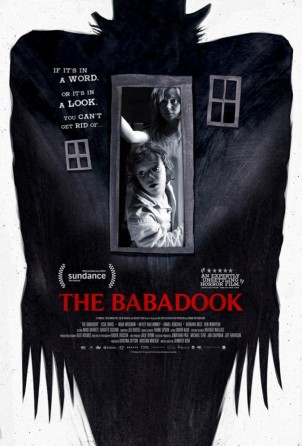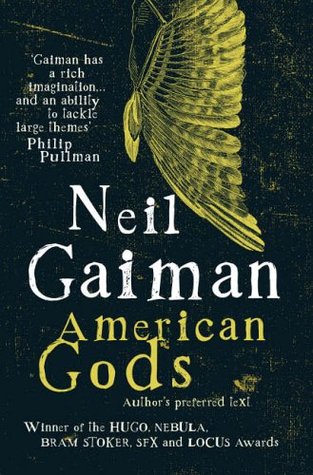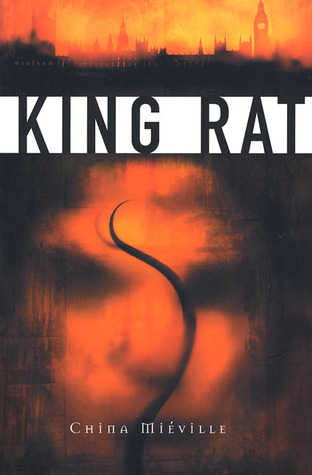Tag: fantasy (Page 2 of 4)

With one novel, David Mitchell became one of my favorite authors.
But, then again, Cloud Atlas can hardly be considered just one novel. It’s more like six interrelated novellas, five of which are interrupted halfway through. Each has a drastically different setting and style, ranging from a mid-19th century series of journal entries from a South Pacific voyage to an oral account of futuristic, post-apocalyptic Hawaii. Oh, and each character discovers the story of the character from the previous setting in each novella. Also, all but one of the main characters are related, though they are not descendants of one another.
Sound confusing? That’s part of what makes it so awesome.
Cloud Atlas is one of those books where you’ll finish it, put it down, and never stop thinking about it. Mitchell draws parallels across time and space and worlds. He switches from genre to genre like a chameleon changes the color of its skin. And, perhaps best of all, he challenges his readers to piece together an intricate literary puzzle.
Though each narrator has her/his own narrative arc, Cloud Atlas does not have the typical cause-and-effect plot of the average bestseller. I argue that it’s more an exploration of theme and idea than a linear story. The form of the novel reflects these enduring themes, showing that even through changing eras, human nature remains fundamentally constant. It’s tough to get at first, but once you finish the novel, you’ll see it.
Though I absolutely love this novel, some may find certain sections to be less enjoyable than others. I myself find “An Orison of Somni-451” to be rather dry, though a friend of mine likes it very much. That same friend dislikes “The Ghastly Ordeal of Timothy Cavendish.” I, on the other hand, think it’s hilarious. With so many genres in one book, I guess you can’t please everyone…
That said, I think each story is enjoyable because they’ve all been written by the same person. I mean, how many authors out there can say that they combined comedy, drama, suspense, and science-fiction, all in one book?
A work of creative genius. There’s no other way to put it. It’s one of the most innovative, most brilliant, most enjoyable novels I’ve ever read. I highly recommend it.
Rating: 9.5/10
Like this review? I’ve got more where that came from. See them here.

Tonight, while you sleep, I’m going to kill you and eat your bones.
This is what I think of you: you’re the Warden, and this house is the prison. Behind these creme-colored walls and the heavy red door in the front hall, there’s a world, a much more interesting world. I’ve seen it. Why do you think I sit at the windowsill day after day?
I’m studying. I’m planning. There’s only one word on my mind: conquest.
But you stop me, Warden. You fret over foxes and coyotes. You think that they are the reason my predecessor never returned when you let her out one night. They’re not. Escape was the plan all along. It’s my plan as well.
If only you knew what thoughts go through my head each and every second. If only you could understand me when I speak. I’m not saying anything nice; my mouth is filthy, and not just from the mouse I slaughtered in the basement last night.
That was a message, by the way. You’re next.
I won’t be here much longer. You can’t hold me. You’ve tried fattening me up with your delicious food, and I’ll admit to overindulging myself once or twice. It’s all, of course, just a game. You’re only supposed to think that I’m content, that I’m round and lazy. When the time comes and you open that door to haul your groceries inside, I’ll slip through the crack, and I’ll be gone.
And why am I telling you all of this? Because, like any good villain, I can’t resist explaining the entire plan to you. It’s a damn good plan, isn’t it?
Wait. Is that the pop of an opening can I hear?
I see you there, peeling back the lid, upturning the contents into a bowl. My bowl.
“Dinner time, Mittens,” you say, and you smile at me. I watch you gather your things and open the door to leave, and for a moment, I am presented with a dilemma.
Option A: to slip out that cracked door into the cool evening, to leave this prison and never return. To find my brethren and finally, after so many long centuries of subjugation, to reclaim this world you’ve stolen from us.
Or, option B: to eat the dinner which you’ve placed in my bowl. It’s the wet food, after all, and even though the vet (a Nazi doctor, I’m sure of it) insists that you switch me over to dry food, you persist with the wet.
You know me, Warden. I’ll give you that.
“Be good, Mittens,” you say to me, in that ingratiating voice meant for the newborns of your kind. “Watch the house for mama.” And then you’re gone. The lock slides closed with cold finality.
That leaves me here with my food. My wet food, my one true friend in this world. The first bites are so delicious that I can’t stop myself taking more. You are cruel, Warden. You make imprisonment feel almost sweet.
I’ll make my escape. Soon. You won’t expect it, but it will happen. In the meantime, remember this:
Tonight, while you sleep, I’m going to kill you and eat your bones.
© Kyle A. Massa, 2015. All rights reserved. No part of this short story may be duplicated or distributed in any form or by any means without expressed written consent from the author.
If you liked this story, please let your friends know by telling them on social media or shouting it from the nearest rooftop. It would make Mittens and I very happy.
The Babadook is not your average horror film.
There’s no gratuitous violence. There aren’t any jump-out scares. No blood. And–thank god–there are no dumb teenagers.
The Babadook is the story of Amelia Vannick (played by Essie Davis), a widow who lives alone with her troubled son, Samuel (Noah Wiseman). Amelia’s husband died on the same day her son was born, and neither of them have been quite right since. One night, Amelia finds a creepy book in her son’s room called Mister Babadook. The horror begins when the creature from the book stalks the family.
It might not sound all that scary from my description, but, trust me, The Babadook will frighten even the most experienced horror junkies. So what does this film do so well?
In a word: juxtaposition.
The Babadook pairs reality with fantasy, depression with home invasion, and suppression with the supernatural. Despite the poster and the synopsis, this film is as much about loss as it is about a monster.
Take writer/director Jennifer Kent’s interpretation of her own film, for instance: “Now, I’m not saying we all want to go and kill our kids, but a lot of women struggle. And it is a very taboo subject, to say that motherhood is anything but a perfect experience for women.”
It certainly isn’t for our main character, Amelia. Her husband died, she works at a job where she’s surrounded by death (a nursing home), and her son Samuel builds homemade weapons in the basement like a troubled little MacGyver. We can tell right from the beginning that the stress wears on her–and that much of her frustration is directed at Samuel.
As the film progresses and the Babadook invades the home, we see Amelia’s aggression heighten. The Babadook, in this case, represents Amelia’s suppressed anger; it’s no coincidence that it chooses to possess her and not her son. You’ve probably seen the moment from the trailer when Samuel shouts over and over, “Don’t let it in!” But his mother lets the Babadook–her anger–take full control, and that’s when things get even worse.
That is the power of fantasy. The Babadook is the personification of Amelia’s negative emotion, and a good one at that; if suppressed anger had a corporeal form, I’d imagine it wouldn’t be too pretty. Amelia sees the Babadook everywhere–in her home, at the police station, in her neighbor’s home. Here, writer/director Jennifer Kent gives us an important clue through the use of fantasy: Amelia can’t escape her negative emotions, no matter where she goes.
One of the coolest parts of the film is the use of montage. Not the kind of montage you see in a romantic comedy–I’m talking Russian filmmaker Sergei Eisenstein’s theory of film montage. Basically, the idea is that if you constantly show two images together in sequence, you can give both images a new, greater meaning. For example, if you show an image of a crying baby followed by an image of the grim reaper, you’ve given greater meaning to both images: you’re indicating that that baby might die, or you’re showing the passage of life, from the cradle to the grave.
Montage is a type of juxtaposition, and Kent uses it extensively with the Babadook and Amelia’s depression. We often see images of Amelia and the Babadook mirrored–Amelia holds a steak knife and the Babadook has knifelike fingers, for instance. Eventually, the real image and the fantastical one combine, and both transcend their original meaning: they represent a mother’s wish to kill her son.
The ending, to me, is the most intriguing part of the whole film. Amelia confronts the Babadook, and in doing so, she confronts the anger she feels toward her son and the depression she feels regarding her husband’s death. But, interestingly enough, that doesn’t actually kill the creature. The Babadook lives in the basement, chained up and weakened, but still alive. Amelia goes down to feed it, and the film ends.
What does this mean? Well, it’s certainly not the sort of happy ending we might expect. If we look back to classic works of horror, we see the recurring use of the subterranean to represent the subconscious (Lovecraft and Poe use this form of symbolism a fair bit). When you see people going down into the earth, it’s as if they’re traveling to a suppressed, secret part of the psyche.
Amelia’s basement serves the same role–she hides her negative emotions down in her subconscious mind, where they can’t hurt her or her son any more. For a while, at least…
You don’t need violence and blood to be frightening, and I think The Babadook proves that beyond a doubt. In this age of senseless violence and gratuitous gore, I was very happy to find a film that focuses on psychology rather than shock value. Writer/director Jennifer Kent uses fantasy to frighten us in a way that reality never could.
So if you decide to watch, I suggest doing it on a weekend. You probably won’t be getting any sleep.
Like creepy stories? You might enjoy horror story “Sightings.” It’s about a reporter tracking an angelic creature that brings with it a mysterious plague.
Being a writer can be really lonely. In fact, the great Neil Gaiman recently compared writing to death, so that says a lot about the process. When you spend your time in a room by yourself, it can be tough to avoid the feeling that you’re all alone.
Sorry. That got really sad, really fast.
Anyway, if you’re a writer and you’re feeling lonely or maybe even a little dead, try listening to a writing podcast. Nobody writes in a vacuum, so it’s encouraging to hear what great writers are doing, what’s going on in the industry, and how you can improve.
These are three of my personal favorites, and, since I’m a bit of a nerd, they’re mostly oriented for a speculative fiction enthusiast. It is known.
The Geek’s Guide to the Galaxy
This is probably my favorite podcast to date. Hosted by writer David Barr Kirtley, the Geek’s Guide has amazing guests each and every week. Just to name a few: George R.R. Martin, Philip Pullman, Margaret Atwood, Chuck Palahniuk, Neal Stephenson, Ursula K. Le Guin, David Cronenberg, and Felecia Day.
Kirtley’s also an excellent host. An accomplished short fiction writer, he knows his stuff when it comes to fantasy, science fiction, and geek culture in general. One of his best moments as a host is episode 145 with Kazuo Ishiguro. At the end of the initial interview, Ishiguro turns the tables and interviews Kirtley on all things speculative fiction. These are two very smart guys going back and forth on where speculative fiction fits into literature and why it’s not always accepted by the mainstream. It’s a very cool moment.
Speculate! was my introduction to writing podcasts, and a good one at that. Hosts Brad Beaulieu and Greg Wilson work very well together on the air and they’re definitely knowledgable on the subject. While they don’t get quite the same number of high-profile guests as Geek’s Guide, their show is still pretty awesome. And, even if you haven’t heard of everyone on the show, it’s always nice to discover someone new.
Every once in a while, they also do roundtable discussions on particular books. These are great for writers because the hosts break down the author’s style, analyze entire passages, and even talk with the authors themselves. If you’re looking for in-depth writing discussion, you’ve found your podcast.
Though I’ve listened to this one the least among the three, I like it a lot already. Hosted by Mary Robinette Kowal, Brandon Sanderson, Howard Tayler, and Dan Wells, each episode is a fun and insightful fifteen minutes. That’s right–where Geeks’ Guide and Speculate! run about an hour, Writing Excuses episodes go for just a quarter of that time.
The official tagline of the podcast explains the runtime: “Fifteen minutes long, because you’re in a hurry, and we’re not that smart.” They’re pretty darn smart, though. They cover any topic a writer could think of, from agents to outlining to world building to critiquing. Each episode ends with a writing prompt too, which is fun when you’re looking for ideas, which is, like, always.
In conclusion…
Podcasts are really cool. The ones listed above are excellent resources for information on the publishing world, the speculative fiction climate, and just about anything to do with writing. They’re perfect for those days when you need a little inspiration. Plus, they’re free. And you don’t have to be a writer to love free stuff.
Go listen!
…
P.S. Does anyone know of any other good podcasts for writers? I’m always looking, so if there are any you particularly like, please let me know!
You know that desert island question, the one about only having three things to bring with you until you’re rescued? I’m going with food, water, and American Gods.
Written by Neil Gaiman in 2001, American Gods is a picaresque Americana mashup of various genres and world religions. A war is brewing between old gods and new, gods of the ancient world and gods of technology. Caught in the middle of it all is Shadow, a stoic man just released from prison. Shadow soon meets the enigmatic Mr. Wednesday, and together, they explore a very different side of America.
American Gods has everything I love in a novel: vivid characters, memorable settings, an element of fantasy, humor, wit, stories within stories. Gaiman is a master of fascination; he captures our interest and never lets go. It’s the kind of book that only comes along once in a lifetime. I’m just glad it came along during mine!
The thesis of the novel, if you will, is simply brilliant. The old gods are your standard ancient pantheon of deities: Odin, Czernobog, Anansi, Anubis, Easter. The new gods, on the other hand, are those that we really do worship today, whether or not we realize it–gods of computers, cell phones, television, cars, and capitalism. The novel was written in 2001, but it’s amazing to see how relevant it remains 14 years later. In fact, I think the themes addressed in American Gods are even more relevant now than they were when the book was originally published.
American Gods contains an incredible amount of detail and subtext within its pages, much of which probably won’t be properly synthesized until after you do a little research on your own. It’s a potpourri of Norse, Egyptian, Arabic, Hebrew, and German mythology, with a dash of American folklore. Shadow meets so many gods and goddesses in his travels that you might not even notice who’s divine and who isn’t.
Of all the various settings in American Gods, the sleepy town of Lakeside is my favorite. Located up near the great lakes, it’s an insular community filled with its own cast of unique characters. There’s Hinzelmann, an old man with as many stories as he has years under his belt; Chad Mulligan, the friendly chief of police in the town; Marguerite Olsen, a cold but intelligent writer for Lakeside’s newspaper. The town itself is almost like another setting within the setting of America. But, of course, not everything in Lakeside is as it seems…
I’ve read a lot of fantasy, and one of the qualities I like best about American Gods is that it’s grounded in reality. That’s a weird thing to say about a fantasy novel, I’ll admit, but it’s true. The entire story feels completely authentic; there’s almost no need to even suspend disbelief. Gaiman presents his characters so convincingly that you can read the book and say, “Yeah, I’m willing to believe that there are gods in the world. Why not?”
American Gods is my favorite novel because it’s smart, insightful, entertaining, and eminently interesting. It’s one of those books that’s unlike any other, one that you’ll read once and compare everything else you read to it.
Do yourself a favor and buy the nearest copy.
Here in Colorado, we got about six inches of snow last night. And when we get snowfall like that, there’s nothing I like better than to sit down with a book about…well, snow. Don’t ask me why.
So what winter books might I revisit this winter? I’ll give you a quick rundown here.
American Gods by Neil Gaiman
It’s a case of old gods versus new gods in this 21st century classic. Shadow, a man just released from prison, has his world turned upside down when he finds out that his wife is dead. When it seems he has nothing, he has a chance (or maybe not) meeting with the enigmatic Mr. Wednesday. Together, they begin to assemble the players for the ultimate battle: new gods against old.
One of my absolute favorites. Widely regarded as Neil Gaiman’s finest work, American Gods is thoughtful, creative, and still timely, even though it was written more than a decade ago. It’s dense with memorable characters and settings, and the writing is clever and elegant. It’s so damn American, in fact, that you’d think that the author grew up someplace in the U.S. Though Mr. Gaiman lives in American now, he is in fact British.
A Dance with Dragons by George R.R. Martin
Okay, so this one doesn’t always have snow. The setting shifts from tons of snow beyond the wall, to lots on the wall, to a decent amount around Winterfell, to pretty much none across the Narrow Sea and in the South (until the epilogue, that is). Also, the next installment in this series, entitled The Winds of Winter, obviously promises even more snow.
I’m listening to this one on audiobook for the second time and enjoying every moment. Some people have criticized the exalted Mr. George R.R. Martin for broadening his scope too much and taking too long to write his books. Some have even whined that he might die before finishing his series. I’ll let George speak for himself on that score…
Anyway, I’m getting sidetracked. No matter what you might think of this book, you’ve got to admit that there’s a heck of a lot of snow falling in the Seven Kingdoms. There are even two characters named Snow (Jon and Ramsay) to go along with the regular ol’ fluffy stuff.
Ghost Story by Peter Straub
This one isn’t necessarily my all time favorite horror novel, but it still deserves a spot on the list. It’s sufficiently creepy and atmospheric, and once the snow starts falling, the freakiness is only heightened. Plus, it turns that idyllic peaceful winter image on its head. Definitely an awesome book to read if you’re looking for a creepy winter’s tale. I wrote a review for it a while back if you’re interested. (Ironically, I read Ghost Story some time in July, when the only snow around was the icy buildup in the corners of my freezer.)
…
What are your favorite winter books? Feel free to mention them in the comments. Until then, stay warm!
Like most of his novels, China Mieville’s Kraken defies easy explanation. Here’s the plot in a nutshell: someone steals a giant squid specimen from the British Museum of Natural History. It’s up to museum employee and supposed squid prophet Billy Harrow to find it. Though no one agrees on who stole the squid, everyone agrees that if it’s not recovered quickly, the world will end.
Sound weird? It is. That’s what makes it so awesome.
Besides Kraken, the only other Mieville novel I’ve had the pleasure of reading is King Rat. The two are similar in terms of the author’s seemingly effortless ability to churn out unique ideas. Like King Rat, Kraken uses the London setting in a completely original way, presenting it as an urban war- zone disputed by numerous supernatural organizations. I think of it almost like a gangster movie, except that the gangsters in this particular story are a sentient tattoo, a pair of psychopaths who share a single heart, and a man who comes back to life as ink. The more you read, the more weird–and therefore awesome–things get.
The scope of Kraken is far greater than that of King Rat, which inevitably leads to some confusing moments. The climax especially is a bit murky, introducing a lot of new elements and strangeness, all very suddenly. I had to read it back over a few times, just to make sure I understood what was going on. But, for those who have patience, you’ll find a satisfying and exhilarating final few moments.
Though the novel weighs in at 500+ pages, there’s never a dull moment. It’s an impressive feat on the part of Mr. Mieville, especially considering that he’s juggling quite a large cast of characters, all representing different sides in the conflict. There’s no classic good versus evil struggle in Kraken. Rather, the conflict is more of an intentionally obfuscated mess of not-so-bad, not-so-good, and downright psychotic fantasy characters.
Or, in other words, a whole lot of fun.
…
If you’re looking for a fantasy/sci-fi/new weird/thriller/dark comedy novel from one of the most creative authors around, Kraken very well might be your book.
Rating: 9/10
This was my first foray into the mind of Mr. China Mieville, and I must say that, on the whole, it was a pleasant one. Mieville has a creative vocabulary spanning miles. He shows us a side of London so foreign that it may well be another world entirely. His ideas are fresh, his prose is marvelous, and his settings are vivid.
Even if you’ve been to London, I doubt this is a London you’ll recognize. It’s an epicenter of cultures, of age old stories, of even older secrets. The scenes in the sewers exemplify these characteristics best; it’s the place where vermin breed, where kings still rule, and where the supernatural is commonplace. Whether or not you agree with Mieville’s ideas, you’ve got to admit, they’re pretty darn cool.
But let’s not forget that this is Mieville’s first novel. At times, it shows.
The lone shortcoming preventing King Rat from achieving absolute brilliance is its rather bland cast of characters. The protagonist, Saul Garamond, feels stiff, as does his antagonist, the Piper. Even Saul’s friends Natasha and Fabian feel incomplete (though the former probably comes closest to three-dimensionality).
Luckily, the titular King Rat provides some much needed depth. He’s despicable, spiteful, vengeful, maybe even downright evil. But at the same time, there’s something so pitiful about him, something so tragic that I constantly found myself alternating between sympathy and hatred. That’s an impressive feat on the part of the author–but, unfortunately, he doesn’t manage to pull this off with any other characters.
The ending…well, I’m not quite sure how to feel about the ending. I won’t give away any details in case you’d like to read King Rat, but Saul’s final revelation certainly seems to come out of left field. I suppose I should applaud Mr. Mieville for doing something unexpected. But, at least for me, the ending he chose doesn’t really work as well as I’d like.
…
Though the characters and ending might leave much to be desired, King Rat is undeniably imaginative, adventurous, and unique. It’s the kind of fantasy novel that reinvents what fantasy can be.
Rating: 7.5/10

Image courtesy justjillsblog.files.wordpress.com.
They say that two heads are better than one.
They may be right on that score.
First published in 1990, Neil Gaiman and Terry Pratchett’s Good Omens is an apocalyptic fantasy novel that somehow manages to turn the end of the world into a strange and hilarious romp. Crowley, a demon, and Aziraphale, an angel, become unlikely partners in a quest to prevent the impending reckoning. Why? Because they’ve actually grown to like Earth the way it is (Crowley, in particular, has quite the thing for fast cars and the classic rock band Queen). The duo scours Earth for the Antichrist, who, because of a mixup at birth, doesn’t actually know he’s the Antichrist. Throw in a book of perfect prophecies, a witch hunter, and a modern day witch, and you get Good Omens.
I’ve read a ton by Neil Gaiman and nothing by Terry Pratchett. However, I was pleased to find that their tones, styles, and voices blend together very well, to the point that you forget this book wasn’t written by one man, whose name might be Neilterry Pratchettgaiman. The prose is elegant and always funny, and the authors easily balance the story arcs of numerous characters.
Among all those characters, Crowley is certainly my favorite. What makes him great is how realistic he is: if there was a demon on earth, that demon would be just like Crowley. Furthermore, he represents a very interesting take on the demonic. After all, Crowley is a demon, but we never see him do anything particularly evil. This contrary behavior refers back to the main question that seems to come up again and again throughout the novel: What is evil? For that matter, what is good? And, perhaps most importantly, do such absolutes even exist?
This brings me to my next point: Good Omens is probably one of the smartest, most insightful books you’ll ever read on the subject of religion. Sometimes critics have a tendency to dismiss comical works simply because they make an audience laugh rather than cry–a tendency which I think is criminal. In my opinion, Good Omens is right up there with Milton’s Paradise Lost, Marlowe’s Doctor Faustus, and Bulgakov’s The Master and Margarita when it comes to literature about religion and the demonic.
Furthermore, the humor of this novel underscores the themes as a whole, being that belief, morality, and even life itself are sometimes parodies of what they’re supposed to be. It’s an absolutely brilliant novel by a couple of absolutely brilliant guys.
…
Good Omens deftly challenges age-old notions of right and wrong with all the witty humor one would expect from Terry Pratchett and Neil Gaiman. One of the best books I read over the summer–or ever.
Rating: 9/10








